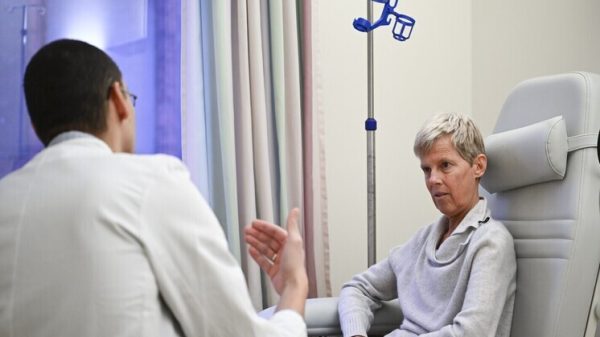
MOSCOW, December 14Scientists at Siberian State Medical University studied the practice of prescribing antibacterial therapy by specialists in various fields and found out with what frequency doctors use antibiotics to treat their patients. The study found that otolaryngologists (ENT), urologists and clinical pharmacologists are more likely to prescribe antibiotics than other specialists. The results of the study were published in the journal Public Health.
Antimicrobials – antibiotics – are medicines used to prevent and treat infections in people, animals and plants. WHO named resistance to these drugs as one of the ten global threats to public health around the world. According to medical analysts, in order to outline ways to solve this problem, a clear understanding of the current situation is necessary.
Doctors from different regions of Russia, as well as Belarus, took part in a scientific study conducted at the Siberian State Medical University (SibSMU). , Kazakhstan and other CIS countries. For this purpose, an electronic questionnaire was used, which was sent out using the database of the largest educational medical resource in Russia. In total, more than 40 thousand questionnaires were sent out.
«
"Having analyzed the number of prescriptions per week, we came to the conclusion that most often — over 10 times a week — antibiotics are prescribed by ENT specialists , urologists and clinical pharmacologists,” said Marina Fedotova, associate professor of the department of faculty pediatrics with a course of childhood diseases of the medical faculty of Siberian State Medical University.
At the same time, she added that local pediatricians and therapists prescribe antibiotics much less frequently.
According to her, about 80% of respondents noted that they rarely have to deal with patients’ requests about the prescription of antibiotics. Meanwhile, according to Fedotova, foreign studies, for example in Turkey, show that 60-70% of doctors experience pressure from patients who urgently ask to prescribe them antibiotics.
“Similar studies abroad show that foreign specialists often take into account the patient’s financial situation and can prescribe antibiotics at his request. While our study revealed the opposite picture, Russian doctors strictly follow current clinical recommendations,” Fedotova emphasized.
In addition, a study by Siberian State Medical University showed that most Russian medical specialists have the ability to conduct bacteriological research and assess the sensitivity of microflora to certain antibacterial drugs, but doctors most often do not do this, but prescribe antibiotics empirically, following clinical recommendations.
“Empirical prescription of antibiotics is a common clinical practice for some diseases of bacterial origin (for example, pneumonia, otitis, cystitis, etc.), because bacterial culture can take up to 7 days, and this time will be lost from a therapeutic point of view,” Fedotova added.
As part of the study, scientists also found out the opinions of doctors about the ban on the free sale of antibiotics, which was introduced several years ago. The majority of doctors surveyed consider this initiative to be correct and note that their practice has remained virtually unchanged against the backdrop of the current ban (this opinion was expressed by 73.3% of respondents).
According to Siberian scientists, the data obtained during the study are the basis for planning educational activities for specialists at various levels (primary health care doctors and highly specialized specialists).
The study was carried out with the support of the university development program «Priority 2030» of the national project «Science and Universities».
< br />























































Свежие комментарии